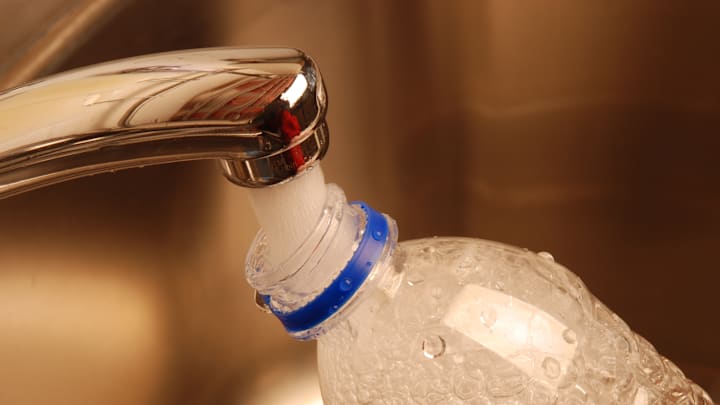Talk to enough people about the virtues of water—a popular conversation starter—and you’ll probably find some tap water skeptics, people who are dubious about the taste or purity profile of the stuff that runs out of their faucets. They insist on buying bottled water instead.
But is tap water really inferior? Isn’t bottled simply a stroke of marketing genius?
According to Healthline, the safety of tap water should rarely be of any major concern. Tap is usually sourced from surface water (lakes, rivers) or ground water and then processed for consumption. The Environmental Protection Agency (EPA) has set limits on over 90 potential contaminants like heavy metals or bacteria to ensure the water is consumable.
Public systems are able to process water to kill pathogens. When contamination does occur, it’s typically from a significant event, like flooding or a water line break. In these instances, community officials alert residents, often by advising them to boil water to kill any bacteria present before use.
Most communities also issue Water Quality Reports on a regular basis, which describe water monitoring findings and alert the public to any concerns or levels above what’s allowed by the EPA.
As for taste: Some people might be bringing their pro-bottled water favoritism into account. Generally, people can’t taste much difference between the two, although some homes may have old plumbing systems or mineral content that can affect the flavor. Using a water filter, either on the faucet or in a pitcher, may improve the taste. In a blind taste test, chances are you wouldn’t be able to discern tap from something with a label on it. Some bottled brands are simply filtered from municipal tap sources. (The label should inform you of the source.)
If bottled water is no better, why does it often come with an expiration date? Thanks to some byzantine bureaucracy, manufacturers began applying a best-by label to satisfy a long-since-amended New Jersey state law. Let bottled water sit around long enough, however, and it might begin to have a funny taste owing to breakdown of its plastic packaging.
The bottom line? Filtered tap water is likely going to be cheaper, with little difference in taste, compared to bottled. By drinking tap, you will also avoid contributing to the 150 millions tons of single-use plastic waste generated globally every year. But if you find the promises of cleaner water in a bottle too appealing to pass up, you're not alone: Americans consumed 15 billion gallons of the stuff in 2020.
[h/t Healthline]
